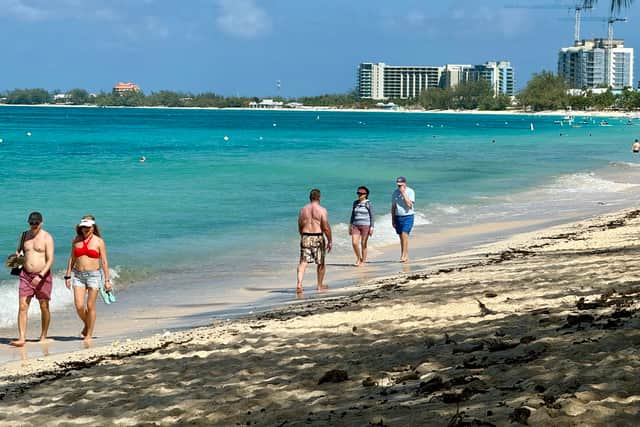Yellow fever vaccine: Holidaymakers issued travel warning as fatal disease surges - symptoms and how to reduce risk
and live on Freeview channel 276
UK holidaymakers are being warned of a potentially fatal disease that is hitting some popular tourist hotspots. Travel Health Pro, an official government advice site used by the Foreign Office, has highlighted the rise of yellow fever, a disease that became well known in the 18th century when it was frequently called ‘Yellow Jack’.
It caused huge fatalities among soldiers and sailors serving overseas, especially in the tropics. It is spread by mosquitos and can cause a serious haemorrhagic illness which can be fatal for humans.
Advertisement
Hide AdAdvertisement
Hide AdTourists heading to the Caribbean, parts of Africa, Central and South America are being warned to be vigilant. Countries which have experienced recent outbreaks include Trinidad in the Caribbean, Burkina Faso, Cameroon, Central African Republic, Chad, Republic of the Congo, Côte d’Ivoire, Democratic Republic of the Congo, Guinea, Niger, Nigeria, South Sudan, Togo and Uganda.
Seven confirmed yellow fever cases included four fatalities in South America which were reported between January 1 and March 19 this year. There have also been three fatal cases in Colombia, two cases in Guyana and two cases in Peru - which included one death. Brazil has reported confirmed yellow fever in monkeys indicating it is circulating in the country.


Travel Health Pro said tourists should get vaccinated and may need an International Certificate of Vaccination or Prophylaxis (ICVP) for yellow fever when they arrive in the country. The infection has an incubation period from being bitten by a mosquito of three to six days.
Vaccination can help protect against yellow fever. Patients often appear to recover but then deteriorate 24 hours later. The World Health Organisation advises a yellow fever vaccine for all travellers aged nine months and older visiting areas with a risk of the disease.
Advertisement
Hide AdAdvertisement
Hide AdInitial symptoms include myalgia (muscle pain), pyrexia (high temperature), headache, anorexia (lack of appetite), nausea, and vomiting. Many patients see an improvement in symptoms and gradual recovery three to four days after the onset of symptoms.
Within 24 hours of an apparent recovery, 15 to 25 percent of patients can progress to a more serious illness. This takes the form of an acute haemorrhagic fever, with possible bleeding from the mouth, eyes, ears, and stomach. There can also be pronounced jaundice - yellowing of the skin, from which the disease gets its name. Other symptoms include kidney damage.
Patients can develop shock and there can also be deterioration of major organ function. It is believed that 20 to 50 percent of patients who develop this form of the disease do not survive.
Infection results in lifelong immunity in those who recover. An urgent referral to an infectious disease/tropical disease clinical team is required if you contract the disease. The UK Health Security Agency (UKHSA) Rare and Imported Pathogens Laboratory is a specialist centre for health professionals providing advice and diagnosis of a wide range of unusual viral and bacterial infections including yellow fever.
Advertisement
Hide AdAdvertisement
Hide AdThe NHS has listed ways that holidaymakers can lower their risk of yellow fever if visiting a country where the disease is found. Listed below is the advice it gives.
Wear long-sleeved clothing and trousers to cover your arms and legs, particularly during early morning and early evening
Use insect repellent on your skin (ideally one that contains the ingredient DEET)
Close windows and doors whenever possible, or use blinds or screens
Sleep under a mosquito net treated with insecticide, including during the day
Comment Guidelines
National World encourages reader discussion on our stories. User feedback, insights and back-and-forth exchanges add a rich layer of context to reporting. Please review our Community Guidelines before commenting.
